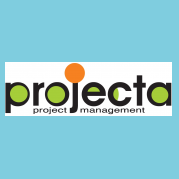ONLINE LIVE – Lean Project Management (LeanPM®) Certificate Programme
Приключило

Дата:
4 - 5 окт. 2021, понеделник - вторникЧас:
09:00 - 16:30Достъп:
Такса участиеМясто:
OnlineВръзки:
Lean Project ManagementЗа контакти:
Проджекта, 02 983 5324, E-MailОрганизатори:
Проджекта ООДЗа събитието
Станете част от революцията в управлението на проекти!
От началото на 21-ви век насам, управлението на проекти е в процес на историческа трансформация. Традиционният подход (predictive, Waterfall, sequential) отстъпва на адаптивния, еволюционен подход на създаване на стойност.
Тази трансформация далеч не е завършила, но вече е ясно, че в съвременните условия, най-успешните методи за управление на проекти са тези, базирани на Lean / Lean-Agile. Доказателство за това е безпрецедентният успех на Lean Product Development, Agile, Lean Startup и Lean Construction.
Обучението Lean Project Management (LeanPM®) ще представи най-модерната рамка за управление на проекти, стъпваща на най-добрите и успешни световни практики. Ще бъдат разгледани подходите, които са приложими не само за отделни видове проекти и сектори, но могат да се адаптират за проекти от всякакъв вид и мащаб.
За кого е това обучение?
Вие сте се посветили професионално на управлението на проекти и може би притежавате професионални сертификати в тази област.
И въпреки това, вероятно си задавате някои от следните въпроси:
- А сега накъде? Какво повече и по-различно от добре познатото ми мога да науча?
- Защо, въпреки че има книги с документирани „добри практики“ по управление на проекти с по 700 страници, проблемите с проектите продължават?
- Какви са новите неща за „напреднали“, с които трябва да се запозная?
- Какво е бъдещето на управлението на проекти, в каква посока ще се развива?
- Само в ИТ сектора ли може да се приложи нещо различно от традиционното управление на проекти?
- Какъв е фундаменът на модерните концепции като Agile/Scrum и как те могат да бъдат разглеждани в по-широка и цялостна перспектива за успешно управление на проекти във всички сектори?
- Има ли модерни концепции, методи и техники, приложими за проекти от най-различен вид и мащаб?
- Откъде да получа идеи за по-успешно управление на проекти?
- Lean и управление на проекти? Защо и как?
Вярваме, че обучението Lean Project Management (LeanPM®) ще отговори на тези въпроси.
Програма
Pre-course reading: Lean Concepts
Day 1
Introducing ourselves
Lean Concepts (Recap) – Lean Pillars and Principles
Concept and Purpose of Lean Project Management
The LeanPM definitions for a project and project Management
Shortcomings of the traditional concept of project management
The concept of Lean project management: the transformation-flow-value generation model
Purpose and pillars of Lean project management
Lean Project Management (LeanPM) Principles
How Do Projects Work? Project Success
The project logic for improving a value stream and for creating a new value stream
Project success and Conditions of Satisfaction
Project variables and trade-offs
Project Waste
Strategic, tactical, accumulated and multiplied waste
Cost of Time
Cost of project delay, project acceleration, lost opportunity, premature delivery and deferred use
Calculation of Cost of Time – example
The best moment to take a decision: Last Responsible Moment vs. Most Responsible Moment
Lean Project Portfolio Management
Traditional vs. Lean project portfolio management
Lean project portfolio allocation and processes
Selection / alignment
Minimum Viable Project (MVP)
Project importance
Exercise 1 – Project Selection
Projects sequencing (schedule prioritization)
Exercise 2 – Projects Sequencing
The Lean Project Life Cycle
The LeanPM project life cycle phases: Idea Generation and Triage; A3 Analysis and Pre-Selection/Selection; Exploration; Sequencing; Creation and Absorption; Project Retrospective and Evaluation
Project life cycle process efficiency
Exercise 3 – Average Lead Time
Lean Development Life Cycle
Traditional and evolutionary development life cycles
LeanPM evolutionary life cycles: Iterative, Exploratory (Lean Startup), Non-iterative and Continuous Delivery
Tailoring of the evolutionary development approach
Lean Project Planning
Traditional vs. Lean project planning
Planning and the Network of Agreements (NOA)
The 9 principles of lean project planning
Planning and control – lean control system
Exercise 4 – Lean Control
2
Day 2
Lean Project Planning (cont.)
Push and pull planning
Estimation – Project Case
Exercise 5 – Time Estimation
Exercise 6 – Cost Estimation
Managing Creation and Absorption
General Approach
Visual Management
Decentralized Project Management
Set-Based Concurrent Design
Sequential (Waterfall) and concurrent design
Centralized design
Point-based design
Set-based design (set-based engineering)
Built-In Quality
Proactive vs. reactive quality control
The objectives of quality management
Foundation and pillars of built-in quality
Quality by Design and Lean Quality Control
Front Loaded Testing; Test-First Development and Managing Quality at the Source
Exercise 7 – Behavior-Driven Specification
Lean Teamwork
Integrated teams, self-organizing teams, Lean-Agile leadership, transparency
Flow Management
The goal of flow management
Controlling Work-In-Progress (WIP)
Little’s Law; optimal WIP; the cost of multitasking
Managing Queues
Projects as queuing systems
The relationships between the average service time, arrival rate, capacity utilization, and waiting time
Matching team capacity and job demand
Controlling Queues
Visualizing queues; Kanban board, Cumulative Flow Diagram (CDF)
The properties of the ideal (idealistic) workflow; workflow anomalies
Responding to queues: dealing with variability, controlling demand, controlling supply
Controlling Batch Sizes
The traditional approach; large and small batches of work; batch conditions
Reducing batch sizes; vertical vs. horizontal slices of work
The Water and The Rocks / Empirical Continuous Improvement
